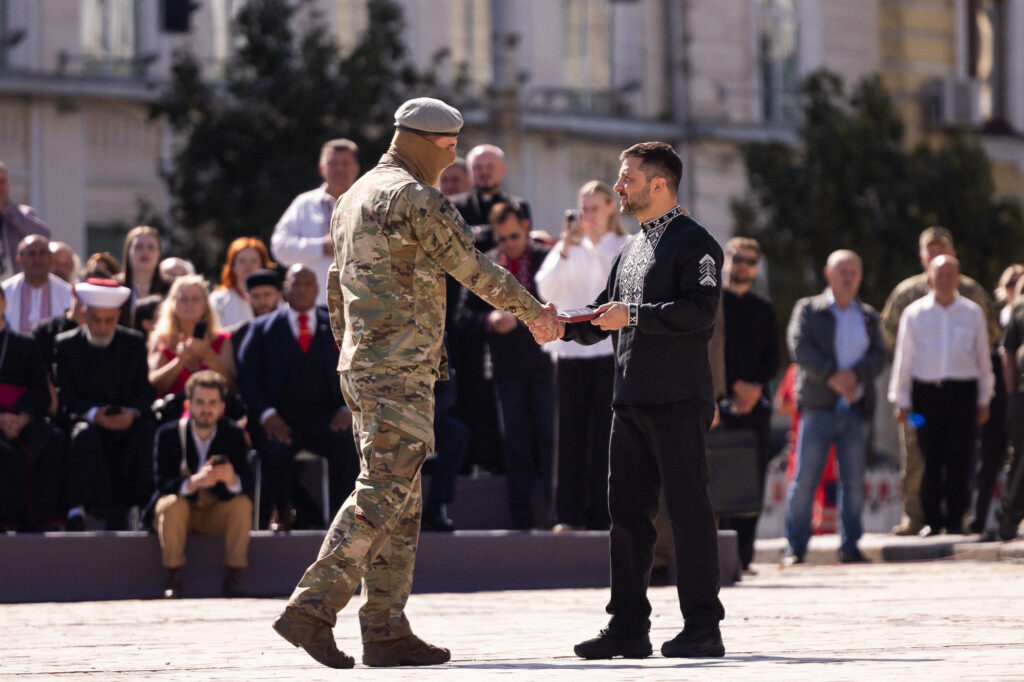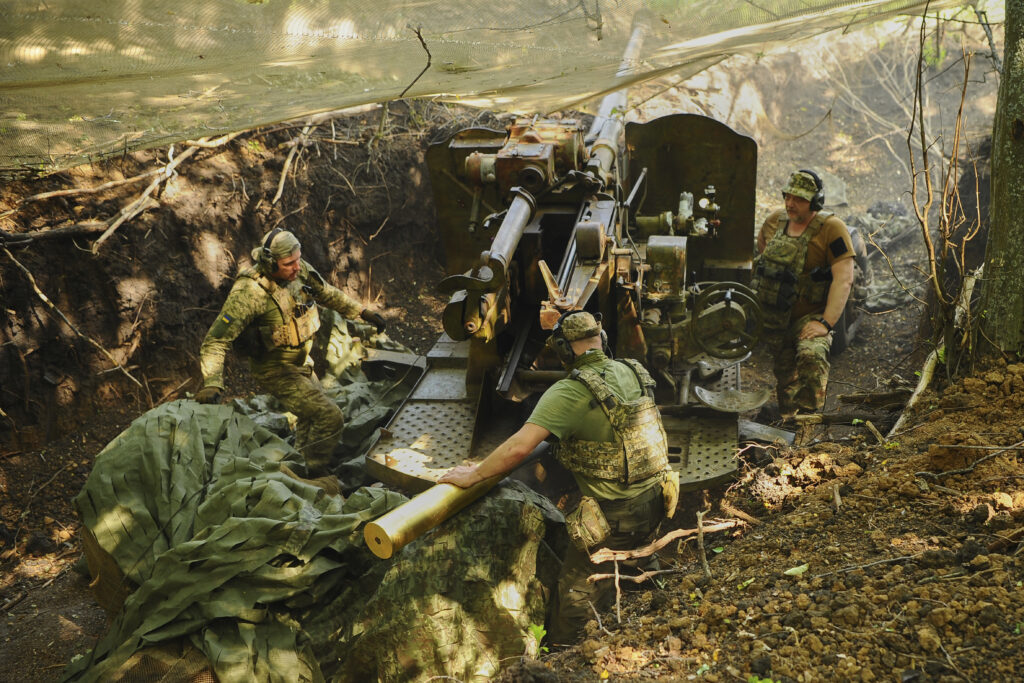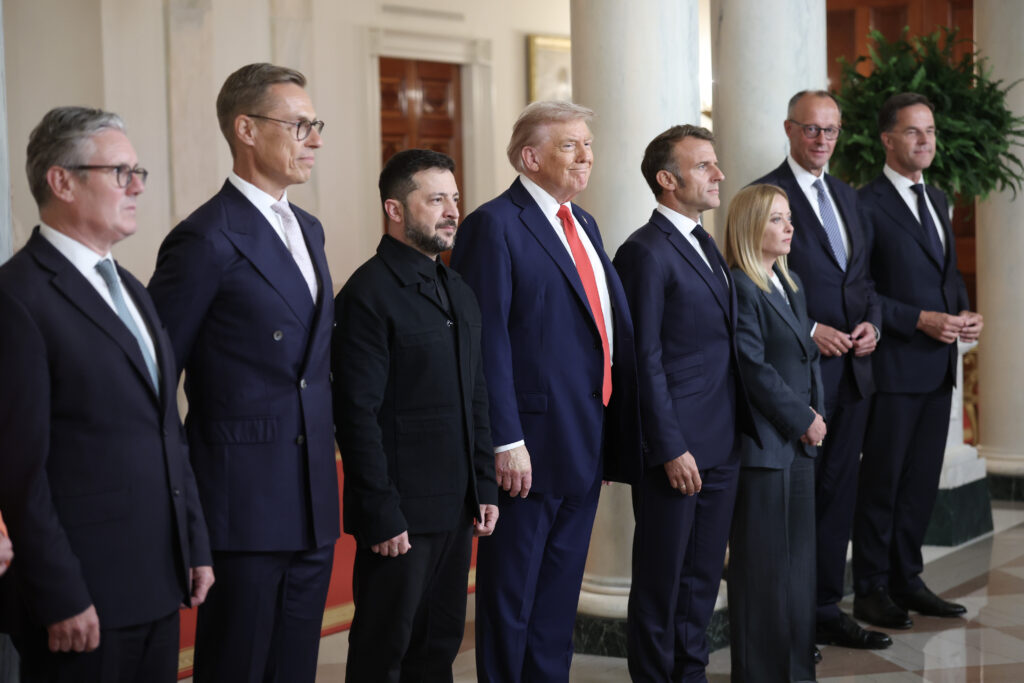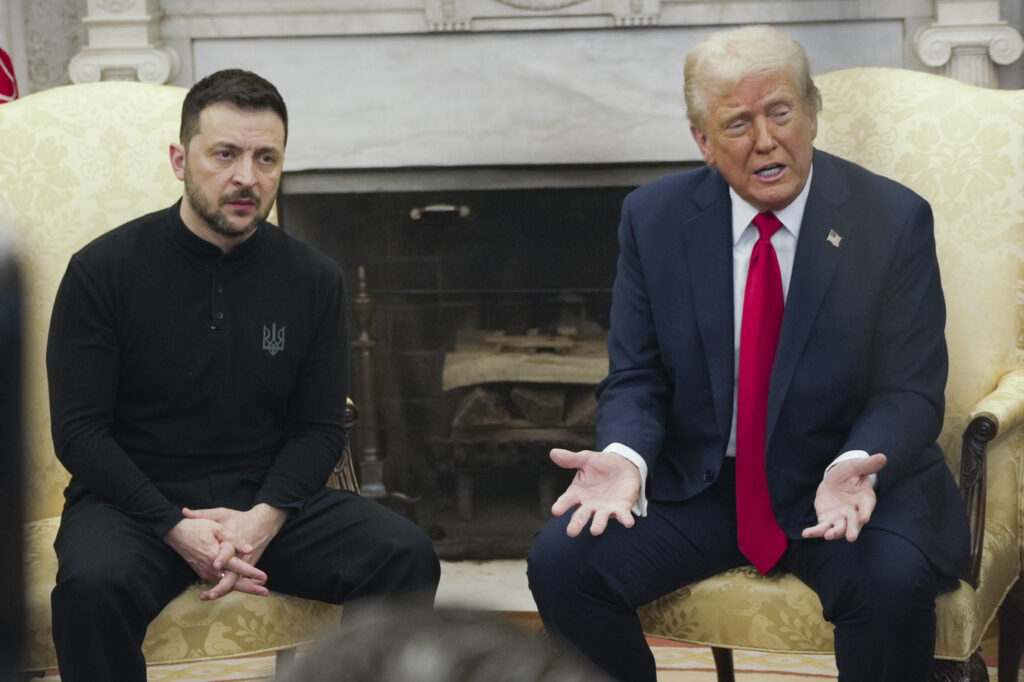Putin, the Stalemate Tsar, Heads to Beijing as Russian Troops Fail To Make Headway in Ukraine
Losing 1 million Russian soldiers to conquer 1 percent of Ukraine is not ‘momentum.’

Next week, President Vladimir Putin will strut on the world stage, joining President Xi Jinping at Beijing for a vast military parade to celebrate the 80th anniversary of the end of World War II. Bathed in images of military triumphalism, Kremlin supporters hope that no one will notice the tsar has no clothes.
After three-and-a-half years of war against Ukraine, a country with a quarter of Russia’s population, Russia controls 19 percent of Ukraine. In the Soviet Union’s first three-and-a-half years of World War II, Red Army soldiers pushed the Germans to Berlin’s eastern suburbs from Moscow’s western suburbs — a distance of some 1,200 miles.
Today, despite news reports of Russian “momentum” and Russia “grinding forward,” Russia has conquered but 1 percent of Ukraine’s territory since its counter-offensive started in November 2022. The 1 percent figure comes from a Ukrainian group, DeepState, that maintains an open source online map of Russian positions in Ukraine.
The price Russia has paid, according to Ukrainian military figures, widely accepted by the Pentagon and Western militaries: 8,273 tanks, 21,405 armored personnel carriers, 54,418 jeeps and trucks, and 995,750 soldiers killed or wounded.

Largely in a defensive crouch since November 2022, Ukraine has suffered about one-third the human casualties of Russia. Ukraine’s commander-in-chief, Oleksandr Syrskyi, claims that Ukrainian casualties are often lower — 15 percent of Russia’s losses.
In the days leading up to the August 15 Trump-Putin summit in Alaska, Russian commanders furiously drove their men forward, hoping to deliver a district city, Prokovsk, as a trophy to the tsar.
Some news reports excitedly noted that the Russians were taking key villages around the southeastern city. After the summit, Ukraine says its soldiers counter-attacked, reclaiming all lost land, and killing or wounding about 1,000 Russian soldiers. Western reports generally failed to note that Russia has been trying to seize Pokrovsk since the summer offensive of 2024.
Today, with autumn approaching, Russia’s vaunted summer offensive of 2025 looks like a nothing burger. Reports warn that Russia is infiltrating small units into Kupyansk, a small Ukrainian city only 30 miles west of the Russian border. Russia has been trying to retake Kupyansk since losing it in 2022.

Along the 750-mile front line, Russia’s new strategy features small groups of men attacking on foot. This is partly because Russia has lost so many vehicles, and partly because drone coverage keeps vehicles from the battlefield. This explains why Russian commanders failed to capitalize on their “breakthrough” at Pokrovsk. Drones prevented moving artillery, tanks, and supplies into exposed areas.
Last week, Britain’s defense ministry estimated that it would take 4.4 years for Russia to fully capture the four regions of Ukraine that Russia “annexed” three years ago. At current rates, the British estimated, this battle would cost Russia an additional 1.9 million men killed or wounded — on top of the one million existing casualties.
“We have seen the same basic war for two years now,” a strategic studies professor, Phillips Payson O’Brien, said last week on Paul Krugman’s podcast. “The Russians have made very small, very bloody advances for 1% of Ukraine. Now, Ukraine isn’t turning the tide of the war with that, but it’s not about to collapse.”
Addressing many Western military analysts, the professor from St. Andrews University, Scotland, said: “They seem to be watching and obsessing about every little — not even village — almost every little farm field in the Donbas, and impregnating all of these tiny little Russian advances or failures to advance as some part of the indication of an impending Ukrainian collapse.”

One week ago, President Trump met with European leaders in the White House. Later, President Emmanuel Macron told reporters that over the past 1,000 days, Russian troops “took less than 1 percent” of Ukrainian territory. He added: “Those who are saying … ‘The Ukrainians are lost. They will lose’. It’s total fake news.”
Looking over the horizon, some American practitioners of realpolitik are factoring Russia’s poor military performance into their thinking about the future of Europe and the North Atlantic Treaty.
“Russia’s stunning losses in Ukraine mean that there has rarely been a safer window for the transition of European security from U.S. to European hands,” a Stimson Center fellow, Emma Ashford, wrote Friday in a Foreign Policy article headlined, “Passing the Baton in Europe.”
To strengthen the Kremlin’s weak hand, Mr. Putin uses an old Soviet strategy known as “cognitive warfare,” a Russia research fellow at the Institute for the Study of War, Nataliya Bugayova, argues in a recent Foreign Policy article.
“Russia will have a better chance of subjugating Ukraine if the Kremlin succeeds in making the world accept the false premise that Russian victory is inevitable and that continued Western aid to Ukraine is futile,” Ms. Bugayova, a Ukrainian, writes from Washington.
She added that Russia’s cognitive warfare “is also about trying to conceal weaknesses while discrediting Russia’s targets. Far from the Kremlin’s portrayal of him as an effective war leader,” she said, Mr. Putin has actually “failed to achieve nearly all of his stated military objectives well over three years into the war — despite an estimated 1 million Russians being killed or wounded in the conflict.”

Early in the Trump administration, this tactic seemed to have worked. In February, Mr. Trump publicly lectured Mr. Zelensky: “You’re not in a good position. You don’t have the cards right now.”
Six months later, at the Anchorage summit, it was Mr. Putin’s turn to overplay his hand, seeking to win at the negotiating table what his troops are failing to win on the battlefield. He put one price of peace as Ukraine’s surrender of its “fortress belt” of Donbas cities and the 250,000 Ukrainians who live there.
Unimpressed, Mr. Trump cut the meeting short, canceled a lunch, suspended plans to announce an American oil deal in Russia, and flew home early to Washington.
Yesterday afternoon, Mr. Trump took a hard line in comments to reporters about Russia. “It’s very, very serious what I have in mind,” he told reporters in the White House. “It will not be a world war, but it will be an economic war. An economic war is going to be bad, and it’s going to be bad for Russia.”
At Beijing, Mr. Xi, a veteran Communist well-schooled in the tricks of cognitive warfare, seems to take Mr. Putin’s mantle of military prowess with a grain of salt.
On Sunday, for the first time since taking power in 2012, Mr. Xi sent a note to Kyiv congratulating Ukraine on its 34th anniversary of independence from the Soviet Union. In a measure of daylight between the two allies, Mr. Putin justifies his invasion by arguing Ukraine is an artificial nation.

